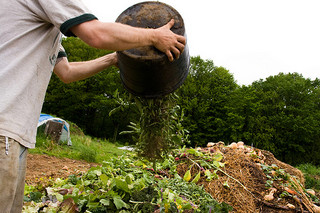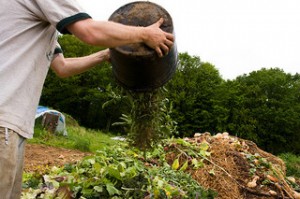Latinos as Consumers and Producers of Organic Food

What comes to mind with the mention of “organic” food? How about in combination with the term “Latino”?
As organic food continues to be a growing presence in the marketplace and conservation dialogue, Latinos have the opportunity to continue to increase their presence in the issue as both consumers and producers of organic food—and help redefine the identity of the typical organic food consumer and producer.
As consumers, Latinos can assist in several ways. A first step is to continue to educate ourselves on what is organic. In truth, this should resonate for many Latinos with roots in traditional parts of Latin America where “organic” was no different than what came out of mama’s or abuelita’s cocina every day. Of course, this comes with the recognition that there is a wide range in the Latino socio-economic spectrum, affecting the opportunities and challenges Latinos face in having access to organic foods. For the segment of Latinos that are low-income, organics can remain a challenge due to high cost and accessibility. Organic foods may either be priced significantly higher than “conventional food” and there may be little access if the community is in a food desert/food swamp. But recent moves like being able to use Supplemental Assistance Nutrition Program (SNAP) cards at farmers markets alleviate part of this challenge.
A second step is to showcase our purchasing power because the organic food marketplace will continue to see Latinos as a plum consumer base. This article from 2008 indicates that the idea is not new and marketing firms are eager to frame products for us if we go into the organic food marketplace unprepared and under-informed. The article notes:
“Latino Americans, the fastest-growing ethnic group in the U.S., have emerged as core organic consumers, defined by market research firm The Hartman Group Inc. as those most actively and intensely involved in the world of organics, purchasing products across multiple categories and embracing more of a total organic lifestyle.”
A third and also very important step would be to continue to advocate for policies that increase access to healthy fresh nutritious food across the socio-economic spectrum. This is so that organic food is not relegated to the label of “elitist” or that it serves only as a privileged benefit of the well-off. This includes continuing to ensure that standards that govern the production and marketing of organics are for the best interests of all consumers. This step will continue to be an ongoing battle as changes in policy affect the business side of organics—the recent battle over Prop 37 in California was a good demonstration of that. And with the Latino vote growing in importance, the Latino voice and awareness on these issues matters even more.
On the other side of the equation, there is a need for Latinos to increase their number as producers of organic food. Latinos have long been a source of labor in agriculture but more recently there has been a movement to increase the Latino knowledge-base and ownership of organic farming. Training programs like those in California and Oregon provide the opportunity for Latinos to go beyond the stereotype of simply working the fields and into the reality of owning and controlling organic produce production. As this AP story notes:
“Bending over beds of shriveled strawberry plants, former farmworker Domitila Martinez pulls pieces of black plastic row covers in preparation for next season’s planting. Except this time, she’s the boss.”
This is important because such programs provide the opportunity to not simply become part of the “conventional” petro-chemical dependent agricultural process, but to put into practice a change from the behaviors and practices that harm farmworkers. As the article notes:
“’We learn how to work with nature and how not to hurt the environment and the workers,’ said Andres Garcia Rico, who works in large scale agriculture and completed the training this fall with his wife. “There are so many people dying of cancer, getting sick because of pesticides.’”
Again, this should resonate with Latinos with family roots connected to the history of locally produced and organic from many rural towns in Mexico and Central America. The history and traditions are there—it is a matter of increasing the opportunity to put them into practice and connecting them to the ongoing development of organics in the US.
Overall, this would be a welcome sight at farmer’s markets and other outlets for organic produce: an increasing diversity of both consumers and producers—and increasing the opportunities where Latino faces are buying organic food from Latino farmers.
[Photo by Sean Patrick Cook]

